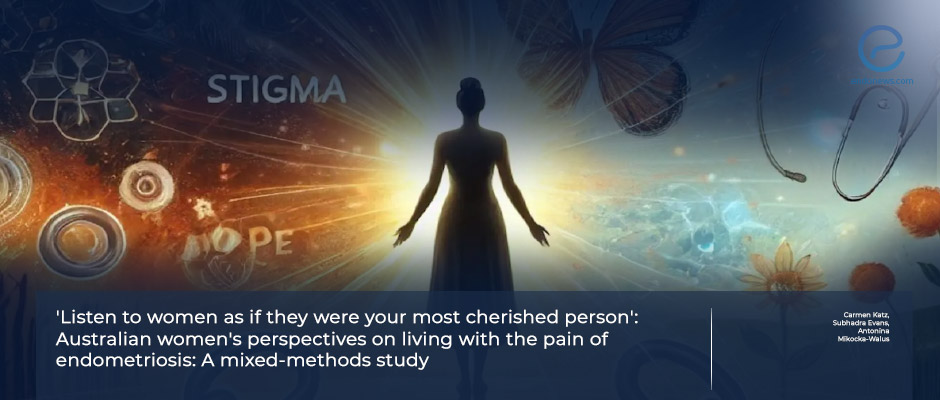Listening to Australian Women: The Personal Impact of Endometriosis Pain
Jan 10, 2025
Listening to Women: Living with Endometriosis Pain
Key Points
Highlight:
- Women with endometriosis often face stigma and inadequate care, highlighting the need to change perceptions of pain and improve healthcare.
- Despite severe symptoms like pain, fatigue, and emotional distress, many women educate themselves and advocate for better treatment.
- Social support plays a crucial role in their health outcomes, emphasizing the need for better healthcare provider competence.
Importance:
-
It's important to reduce stigma, improve healthcare, and provide better support to help women with endometriosis feel empowered and improve their health.
What’s done here?
- This is a mixed-method cross-sectional study of 533 Australian women withendometriosis for identifying stigma, inadequate healthcare, and the debilitating effects of the condition.
- The relationships between biopsychosocial factors and women’s perspectives, and the role of social support and healthcare quality on their well-being were evaluated.
Key results
- Women with endometriosis experience stigma, inadequate healthcare, and insufficient social support, intensifying their physical and psychological distress.
- Self-advocacy and empowerment emerged as vital strategies for women to navigate the debilitating impact of endometriosis.
- Improving clinician competence, empathy, and fostering supportive environments can significantly enhance health outcomes for affected women.
Lay Summary
In a study published in Journal of Health Psychology, Katz et al. investigated the perspectives of Australian women with endometriosis, evaluating their experiences of pain, stigma, healthcare, and the biopsychosocial factors influencing their quality of life.
Endometriosis affects millions of women worldwide, causing debilitating pain, fatigue, and significant impacts on emotional well-being. This study explored the perspectives of women living with endometriosis and highlighted the challenges they face. Many participants described feeling dismissed and stigmatized, especially regarding their menstrual pain, which is often normalized by society and healthcare providers. This stigma discourages women from seeking help, leading to delays in diagnosis and treatment. Women also expressed frustration with inadequate healthcare and the financial burden of managing their symptoms.
Despite these challenges, many women demonstrated resilience through self-education and advocacy. They emphasized the importance of better social support, greater empathy, and improved knowledge among healthcare professionals to address their needs effectively. The study underscores the critical need for interventions that empower women, foster understanding, and improve the quality of healthcare and social support.
By listening to and addressing women’s concerns, more supportive and effective approach to managing endometriosis can be established.
Research Source: https://pubmed.ncbi.nlm.nih.gov/38738914/
stigma endometriosis pain self-empowerment

